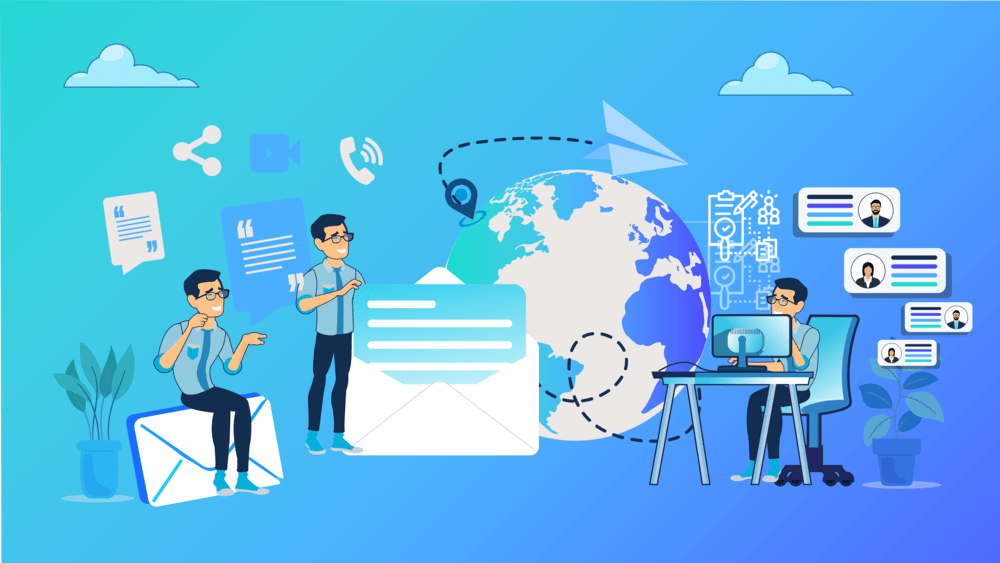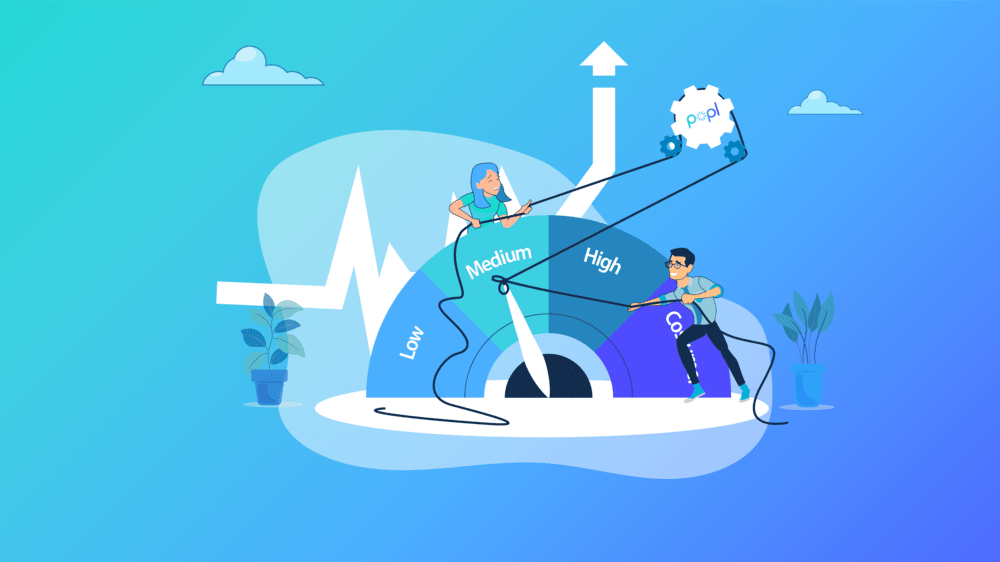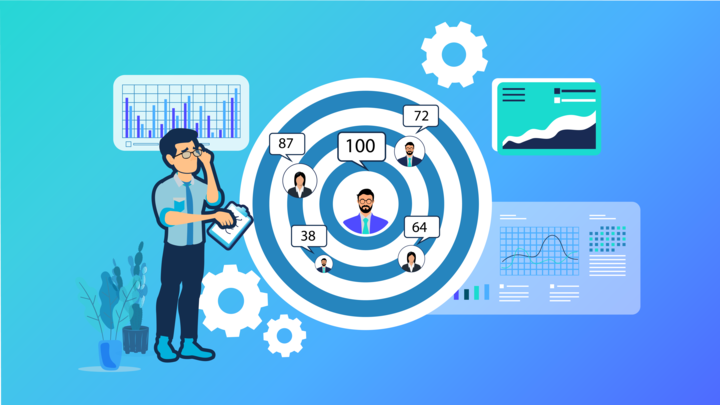Becoming a lead generation specialist is a rewarding career path that combines elements of marketing, sales, and data analysis to drive business growth. These professionals play a crucial role in identifying potential customers, nurturing relationships, and converting leads into sales opportunities.
With the rise of digital marketing and customer relationship management (CRM) technologies, the demand for skilled lead generation specialists is on the rise.
This guide will walk you through the essential steps to becoming a lead generation specialist, from obtaining the necessary education to developing key skills and understanding compensation expectations.
What is a Lead Generation Specialist?
A lead generation specialist is a marketing professional dedicated to identifying and cultivating potential customers for a business's products or services. This role involves a blend of analytical skills, creative thinking, and a deep understanding of the target audience.
In today’s digital age, the role has evolved significantly, relying heavily on data analytics, customer relationship management (CRM) systems, and innovative marketing tools.
Responsibilities of a Lead Generation Specialist
A lead generation specialist typically wears many hats. Their primary responsibilities include:
- Identifying Target Audiences: Using market research to pinpoint who the ideal customers are and what they need.
- Crafting Targeted Campaigns: Designing marketing strategies and campaigns that speak directly to the pain points and interests of these audiences.
- Utilizing CRM Tools: Managing and analyzing customer interactions and data throughout the customer lifecycle, with the goal of improving customer relationships and driving sales growth.
- Data Analysis: Monitoring and analyzing campaign performance to refine strategies and achieve better results.
- Collaboration: Working closely with sales and marketing teams to ensure alignment and maximize the effectiveness of lead generation efforts.

What Does a Lead Generation Specialist Do?
A lead generation specialist plays a pivotal role in the sales and marketing ecosystem.
They are responsible for identifying potential customers, nurturing these leads, and ultimately driving them down the sales funnel. Their multifaceted role requires a combination of analytical skills, creativity, and a deep understanding of market dynamics.
Here’s a detailed look at their key responsibilities:
Identifying and Contacting Prospective Customers
At the heart of lead generation is the ability to pinpoint potential customers. This involves extensive market research and data analysis to understand who the ideal customers are and where to find them.
A lead generation specialist leverages various tools and platforms, including social media, CRM systems, and lead generation software, to build a robust pipeline of prospects.
Prospecting often involves:
- Market Research: Identifying market segments and customer demographics.
- Data Mining: Extracting relevant information from databases and online sources.
- Social Media Outreach: Engaging with potential leads on platforms like LinkedIn.
Evaluating and Qualifying Leads
Not all leads are created equal. The next step involves evaluating and qualifying these leads to determine their potential value to the business. This is where the specialist assesses the lead's fit based on criteria such as budget, need, and decision-making authority.
Lead qualification is essential to ensure that sales teams focus their efforts on the most promising prospects.
Key activities include:
- Initial Contact: Reaching out via cold calls, emails, or social media messages.
- Needs Assessment: Conducting preliminary conversations to understand the lead's requirements.
- Scoring Leads: Assigning scores based on the lead's likelihood to convert, using metrics like engagement level and company size.
Managing Leads and Contact Base
Effective lead management is crucial for maintaining an organized and productive sales pipeline. A lead generation specialist uses CRM systems to keep track of all interactions and ensure that no lead falls through the cracks. This involves regular follow-ups, updating lead statuses, and maintaining detailed records of all communications.
Best practices include:
- CRM Maintenance: Keeping the database clean and up-to-date.
- Follow-Up Strategies: Implementing timely and consistent follow-up actions.
- Pipeline Management: Ensuring leads are moved efficiently through the sales funnel.
Outbound Marketing: Cold-calling and Emailing
Outbound marketing remains a staple in lead generation. Cold-calling and emailing are direct methods used to reach potential customers who have not yet expressed interest in the product or service. While challenging, these methods can be highly effective when done correctly.
Successful outbound marketing strategies involve:
- Cold-Calling: Making unsolicited calls to potential customers, often using a prepared script.
- Email Campaigns: Sending targeted emails to introduce the product or service and generate interest.
- Personalization: Tailoring messages to resonate with the recipient’s specific needs and pain points.
Lead Qualification, Grading, and Scoring
Lead qualification, grading, and scoring are integral to prioritizing leads and focusing efforts on those most likely to convert. This process involves evaluating leads based on predefined criteria and assigning them a score or grade.
This helps in segmenting the leads into categories such as Marketing Qualified Leads (MQLs) and Sales Qualified Leads (SQLs).
Essential components include:
- Lead Scoring Models: Creating models that assign points based on lead behavior and characteristics.
- Grading Criteria: Defining the attributes that determine a lead’s potential value.
- Segmentation: Categorizing leads to tailor follow-up actions and marketing efforts.
Lead Generation Specialist Skills
Being a successful lead generation specialist requires a blend of various skills. These skills not only help in identifying and nurturing potential leads but also in effectively managing and optimizing the lead generation process.
Here's a detailed look at the essential skills needed for this role:
Communication and Soft Skills
Effective communication and strong soft skills are at the core of a lead generation specialist's success. These skills enable specialists to build rapport with potential customers, understand their needs, and convey the value proposition of the product or service clearly.
- Excellent Verbal and Written Communication: Being able to articulate ideas clearly and persuasively is critical. Whether it’s through emails, cold calls, or social media outreach, the ability to engage and connect with prospects is paramount.
- Active Listening: Understanding the pain points and needs of potential leads requires attentive listening. This skill helps in tailoring the conversation to address specific concerns and build trust.
- Empathy and Relationship Building: Building relationships is a key component of lead generation. Demonstrating empathy and understanding towards potential customers fosters a connection and paves the way for a successful conversion.
Proficiency with CRM Software
Customer Relationship Management (CRM) software is a vital tool for managing and analyzing customer interactions. Proficiency with CRM software is crucial for keeping track of leads, maintaining organized records, and ensuring seamless follow-ups.
- Data Entry and Management: Efficiently entering and managing data in the CRM system ensures that all interactions and lead details are up-to-date and easily accessible.
- Automation and Workflow Management: Utilizing CRM features such as automated emails and task reminders can significantly streamline the lead management process, making it more efficient and less prone to errors.
- Analytics and Reporting: CRM systems often come with analytics tools that help in monitoring the performance of lead generation campaigns. Understanding these tools allows specialists to make data-driven decisions and optimize strategies.
Understanding of Sales Processes
A thorough understanding of sales processes is essential for a lead generation specialist. This knowledge helps in aligning lead generation efforts with the overall sales strategy and ensures a smooth transition from marketing to sales.
- Sales Funnel Knowledge: Knowing how leads move through the sales funnel, from initial contact to conversion, helps in designing effective lead nurturing strategies.
- Lead Scoring and Qualification: Understanding the criteria for qualifying leads and the methodology for scoring them ensures that only high-potential leads are passed on to the sales team.
- Collaboration with Sales Teams: Regular communication with the sales team ensures alignment and helps in refining lead generation strategies based on feedback from the field.
Data Analysis
Data analysis is a critical skill for evaluating the effectiveness of lead generation efforts and identifying areas for improvement. By analyzing data, lead generation specialists can make informed decisions and optimize their strategies.
- Interpreting Metrics and KPIs: Understanding key performance indicators (KPIs) such as conversion rates, lead quality, and campaign performance is essential for measuring success.
- Identifying Trends and Patterns: Analyzing data to identify trends and patterns helps in understanding what works and what doesn’t, enabling continuous improvement.
- Using Analytical Tools: Proficiency with tools like Google Analytics, CRM analytics, and other data analysis software is crucial for gathering insights and making data-driven decisions.

How to Become a Lead Generation Specialist
Becoming a lead generation specialist involves a blend of education, practical experience, and the development of both technical and soft skills.
Here’s a step-by-step guide to help you on your journey:
Get a Degree
While not always mandatory, obtaining a degree can provide a solid foundation for a career in lead generation. A bachelor's degree in marketing, business administration, communications, or a related field is often preferred by employers.
This educational background equips you with essential knowledge about market research, consumer behavior, and strategic planning.
- Relevant Coursework: Focus on courses that cover digital marketing, sales strategies, data analysis, and customer relationship management.
- Internships and Projects: Participate in internships or academic projects that provide hands-on experience in marketing or sales. These experiences are invaluable and can significantly enhance your resume.
Learn About Sales and CRM Software
Proficiency with sales and CRM software is crucial for managing leads effectively. Familiarize yourself with popular CRM systems like Salesforce, HubSpot, and Zoho CRM. Understanding these tools will not only make you more efficient but also more attractive to potential employers.
- Online Courses and Certifications: Enroll in online courses or obtain certifications that focus on CRM software and sales techniques. Websites like Coursera, LinkedIn Learning, and Udemy offer valuable resources.
- Hands-On Practice: If possible, gain practical experience by using CRM software in internships, part-time jobs, or through demo versions available online.
Develop Your Soft Skills
Soft skills such as communication, empathy, and active listening are essential for engaging with potential leads and building relationships. These skills are critical for understanding the needs of your prospects and effectively conveying the value of your products or services.
- Communication Workshops: Participate in workshops or online courses that focus on improving your verbal and written communication skills.
- Role-Playing Exercises: Practice role-playing scenarios with colleagues or mentors to enhance your active listening and empathy skills.
- Networking: Attend industry events and join professional associations to network with experienced professionals and learn from their expertise.
Apply for the Position
Once you have the necessary education, technical skills, and soft skills, it’s time to apply for lead generation specialist positions. Tailor your resume and cover letter to highlight your relevant experience, skills, and any certifications you have obtained.
- Job Search Platforms: Use job search websites like LinkedIn, Indeed, and Glassdoor to find open positions. Tailor your profile and apply to roles that match your skills and career aspirations.
- Company Websites: Visit the careers pages of companies you are interested in and apply directly through their websites.
- Networking: Leverage your professional network to learn about job openings and get referrals. Networking can often lead to opportunities that are not advertised publicly.
Lead Generation Specialist Compensation
Compensation for lead generation specialists can vary based on factors such as location, experience, and the size of the company. According to Glassdoor, the average salary for a lead generation specialist in the United States is approximately $50,000 to $70,000 per year.
Additionally, many positions offer performance-based bonuses and commissions, which can significantly increase total earnings.
- Entry-Level Positions: Entry-level specialists can expect to earn between $40,000 and $50,000 annually.
- Experienced Specialists: With several years of experience, salaries can range from $60,000 to $80,000 or more, depending on the complexity of the role and the industry.
Conclusion
In summary, a career as a lead generation specialist offers exciting opportunities for those who are passionate about marketing and sales.
By obtaining a relevant degree, mastering CRM software, honing your communication skills, and effectively applying for positions, you can embark on a successful journey in this field. The role not only promises a dynamic work environment but also offers competitive compensation and the potential for growth.
As you advance in your career, continuous learning and adaptation to industry trends will be key to maintaining your edge and achieving long-term success.
Whether you are just starting out or looking to make a career change, the path to becoming a lead generation specialist is filled with possibilities.















